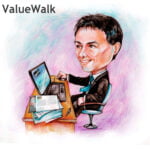we were sort of confused when we noticed the Wall Street Journal is doing an entire series on what they’re calling “the quants,” including the lead article title “The Quants Run Wall Street Now.” Now? Are they not familiar with Scott Patterson’s 2010 book “The Quants: How a New Breed of Math Whizzes Conquered Wall Street and Nearly Destroyed It.” Mr. Patterson was, after all, a staff reporter of… wait for it… the Wall Street Journal.
We get it, algorithms and quants and machine learning and roboadvisors and all the rest are the latest buzz words in a financial world increasingly comfortable with the concept of computers running things, from self-driving cars to algorithm-driven shopping recommendations to self-adjusting thermostats. There’s also the fact that “Quant hedge funds” are responsible for 27% of all U.S. stocks traded these days, just slightly behind individual investors at 29%, and now comfortably ahead of such trading by “other hedge funds” and traditional asset managers.
Ultimately, it’s a little disingenuous to pretend this is new at all. It’s at least as old as pre-financial crisis, as portrayed in the aforementioned book (which they do mention, about half way in); but more than that – futures focused hedge funds have been doing quant stuff for decades. Some might even say they invented it. We’re talking quants who’ve have been trading currencies, grains, foreign bonds, WTI, going both long short these strategies making returns since the 1980’s. Don’t believe us, go read this book detailing the exploits of legends like Boston Red Sox owner John W. Henry, who was doing systematic (investing based on an algorithm) trading in futures markets way before Theo Epstein was a twinkle in his eye.
The article gets some of this right, highlighting long time managed futures stalwart Man AHL, and their recent allocation from Pepperdine University.
Much of that push is coming from investors such as Pepperdine University in Malibu, Calif. Last year, the college placed about 10% of its $750 million portfolio in big quant funds, including those run by Man Group PLC of London and AQR Capital Management LLC, Greenwich, Conn.
How did AHL get its start in the quant world? By someone trying to automate the mundane task of updating sugar charts. Here’s an excerpt from a recent feature we wrote about them:
It all started at a London sugar brokerage named Brockham Securities where owner Cyril Adam charged his son, Michael with updating the commodities charts – a task he took to automating with computers, and that eventually turned into coding technical indicators. The work was plentiful, and Adam quickly brought on Oxford classmate (and computer programmer) Martin Leuck to assist. They then found Cambridge alum David Harding, who had done a stint on the trading floor of the LIFFE and gone on to work at a UK based CTA named Sabre Fund Mgmt.
A little more recent name, Two Sigma, also gets a mention, even though it’s up for debate whether they are strictly a Managed Futures firm. There’s also futures legend Paul Tudor Jones, who is mentioned as being one of the later entrants to the quant world and trying to catch up in a sense by hiring them on.
In the end, this isn’t new – us futures folks have been doing it for years and years. But it is far from old, either. There is definitely a new generation of quants pushing the envelope in terms of alternative data sets, execution algorithms, and more. And there’s definitely, as the Journal points out, a sort of arms race among hedge funds for quant talent to help build out their next generation algos and machine learning and what not. Which that begs the question, if everyone’s doing it, is there going to be an edge in it? If we’re not already there, we will be in a matter of time – where it’s not enough to simply be doing “quant stuff,” to be overly generic. You have to be doing the quant stuff well. Having a quant on staff and building algorithms are really just the table stakes or price of admission these days. Which, maybe, is what the article is trying to say in the first place.
To learn more about the History of some of the famous quants, download our “History of Managed Futures” Whitepaper here.













